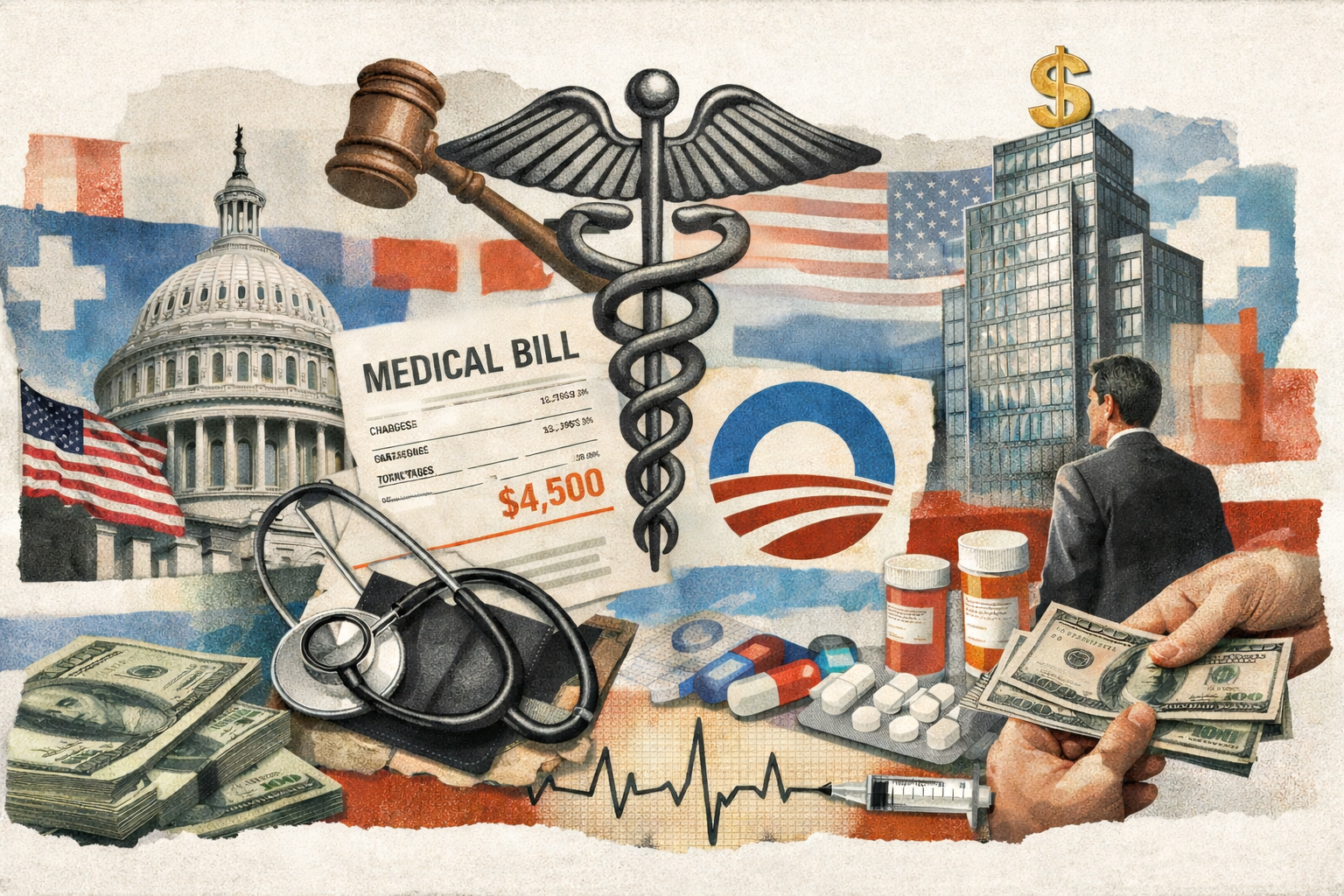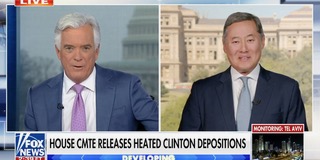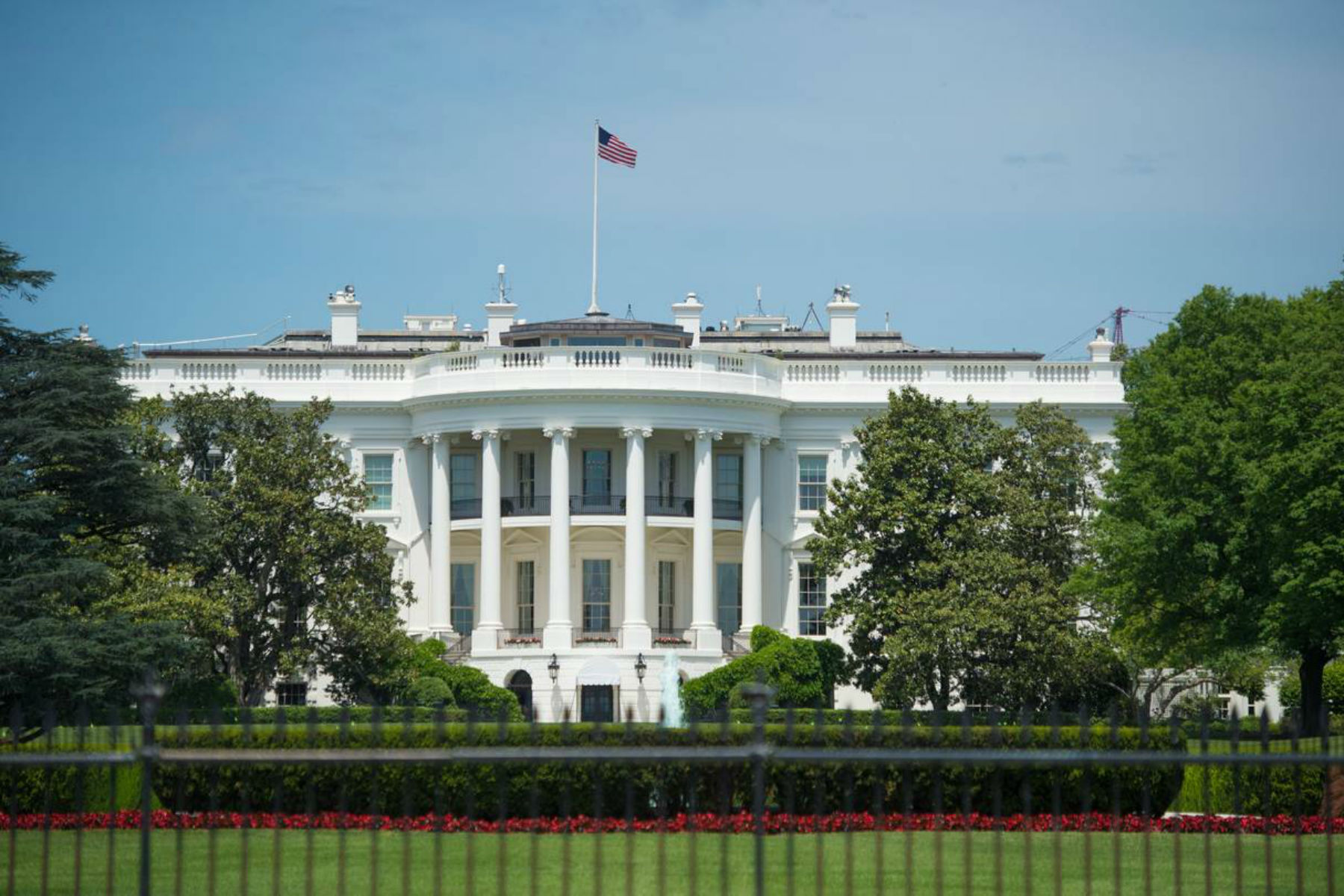
Now It Can Be Told
Confession is good for the soul, but insufficient for the republic. Fight, Uncharted, and Original Sin fail to discuss the legacy media’s sins of commission and omission in reporting the story.
Why did Donald Trump and the Republicans defeat Kamala Harris and the Democrats in 2024? The three-word answer to that question is, as the 46th president himself might have said: Joe Biden. Specifically, Biden’s decision to run for a second term, which would have kept him in office until two months beyond his 86th birthday, put Democrats at a disadvantage from which they never recovered.
Three new books tell this story: Fight: Inside the Wildest Battle For the White House, by Jonathan Allen and Amie Parnes; Uncharted: How Trump Beat Biden, Harris, and the Odds in the Wildest Campaign in History, by Chris Whipple; and Original Sin: President Biden’s Decline, Its Cover-Up, and His Disastrous Choice to Run Again, by Jake Tapper and Alex Thompson. Some of their details differ, but they agree on the key points: Trying to reelect Biden would have been a challenge even if he had demonstrated during his first term that he was America’s most vigorous, alert octogenarian. Every voter understands time’s inexorable toll, and most have had the experience of dealing with a parent or grandparent’s decline. But the Joe Biden who ran for president in 2020 was diminished from the prolix politician first elected to the United States Senate in 1972. Furious, often preposterous denials from the White House notwithstanding, the evidence that Biden was slidin’ mounted throughout his presidency, culminating in his disastrous debate against Donald Trump in June 2024.
Even then, Team Biden insisted that the debate was nothing more than a “bad night,” and that the president was determined to stay in the race and win it. It took three and a half weeks for panicked Democrats, fearing the loss of not only the presidency but also dozens of congressional seats, to force Biden to abandon his campaign. Though far from imposing, Kamala Harris was at least able to speak comprehensibly. But this improvement was too little, too late. Democrats could not climb out of the hole Joe Biden had dug them into.
For many years, journalism was called the first draft of history, but these three books belong to a recently emerged genre that offers a second draft, providing neither the immediacy of reporting nor the perspective of archival research. The offsetting advantage is that knowledgeable sources speak to the authors more candidly than they would if their words were likely to be quoted in a news story published the next day, during—and possibly affecting—a contested election. Some political insiders agree to be interviewed by the writers during the campaign, on the understanding that nothing they say will used until the book is published after the election. This appears to be how Fight and Uncharted were assembled. As for Original Sin, “Most of the information laid out in this book was shared with us after the election of 2024, when officials and aides felt considerably freer to talk.”
The differences among the books are less important than the similarities. More likely than not, the various authors spoke to many of the same sources. It’s impossible to find a juicy, off-the-record quote in any one of the books that would be out of place in the other two.
The closest thing to a substantive disagreement is that Fight contends that Joe Biden pressed Kamala Harris’s campaign to uphold their joint record. “No daylight, kid,” Biden is alleged to have told Harris the night before her debate against Donald Trump. In Uncharted, by contrast, we learn that senior Harris campaign officials went to the White House in October 2024 to inform the administration that if she were going to win, “Harris needed to break with the president.” Indeed, “Biden himself told Harris that she should do whatever she had to do, say whatever she wanted to say—his feelings wouldn’t be hurt.”
There’s no way for the reader to know which account is accurate. What’s interesting is that neither version reflects well on Kamala Harris, who ultimately either failed or refused to put any daylight between herself and Joe Biden. It doesn’t much matter whether the explanation is that she didn’t have the temerity to antagonize a fading politician, or that she lacked the political agility to do what even her nominal superior urged upon her.
Whichever inside account is more accurate, both books agree that her campaign’s worst moment came when friendly hosts on ABC’s The View urged her to establish even a bit of separation from the doddering incumbent. “Would you have done something differently than President Biden during the past four years?” Sunny Hostin asked. “There is not a thing that comes to mind,” Harris answered, “and I’ve been a part of most of the decisions that have had impact.” In other words, not only did she agree with every significant policy undertaken by a historically unpopular administration, Harris insisted that she’d played an important role in formulating those policies. The Trump campaign began running an attack ad featuring the Harris blunder 24 hours after the interview aired.
Another difference is that Fight and Uncharted have a broader scope than Original Sin. The first two books cover both the Republican and Democratic races, all the way through to the election. Even though Trump overcame criminal charges and an assassination attempt that nearly succeeded, the more dramatic story is the Democratic one, as the party stood by its senescent standard-bearer … until the debate caused Democrats to mount a desperate 11th-hour campaign to avert Biden’s nomination. Fight and Uncharted detail the unraveling of the Biden campaign, necessitated by the unraveling of Biden himself, prior to second halves that tell the back-and-forth story of the contest between Trump and Harris. Original Sin’s sole focus is on Biden: the severity and duration of his mental and forensic decline, and how his party’s years of being disingenuous and willfully oblivious about his capacities turned into a sudden, furious campaign, both in public and behind the scenes, to force an incumbent president off the ticket.
Each book, upon publication, received considerable attention, and the most arresting vignettes or quotes were widely disseminated. This may be good for sales, but frustrating for readers. Leafing through any of the books is like finally seeing a movie after trailers have already given away the best lines and plot twists. Nevertheless, it is irresistible to read campaign bigwigs pointing fingers and settling scores.
The books share two critical shortcomings. First, they give evidence consistent with the hiding-in-plain-sight key to understanding 2024—the biggest part of Democrats’ Joe Biden problem was their Kamala Harris problem—but never develop this theory of the case. The Joe Biden problem was not, it turned out, that it was too difficult and divisive to force a sitting president to abandon a reelection campaign. It took only 24 days after the debate against Trump for Democrats to end Biden’s career in electoral politics. Among the sources of leverage, mentioned in passing by Fight and Original Sin, was that fundraising for his 2024 campaign was plummeting. Following the debate against Trump, “Biden campaign aides told leadership that they couldn’t guarantee making payroll in the coming weeks,” according to Tapper and Thompson.
The real Joe Biden problem was that denying him the nomination would have been reckless rather than daunting. Throughout his first three-and-a-half years in office, Democrats came to believe that Biden’s departure from the race, voluntary or forced, would almost certainly mean the nomination of Vice President Harris, an outcome that would almost certainly mean the election of Donald Trump. In the years between her own presidential campaign, launched and abandoned in 2019, and having the 2024 nomination fall into her lap, Harris had done little to burnish her reputation and much to damage it. Joe Biden’s approval ratings were consistently low. Yet hers were consistently lower. Between pandering to social justice warriors as a candidate in 2019, daft verbal tics like “seeing what can be, unburdened by what has been,” and her abrupt, convulsive laughter after utterances that were only faintly amusing, Harris had given critics ample reason to dismiss her as a lefty, a lightweight, and a loon.
But the Kamala Harris problem went beyond her being a mediocrity. As recently as 2016, Democrats had passed over a sitting vice president when they doubted his ability to win a general election. (It is one more reason why, as Democratic pollster Stanley Greenberg said in reviewing Fight and Uncharted, that Joe Biden comes across as “extremely personally insecure and constantly looking for evidence of his success and approval.”) In 2016, identity politics worked against Biden. Democrats, traumatized in 2008 by having to reject either the first black or the first female presidential nominee, were strongly motivated, the next time a nomination was open, to make it up to that year’s defeated aspirant, Hillary Clinton. Against that desire, Biden’s eight years of loyal service as vice president counted for very little. He declined to run after the lack of support from the party and President Obama was made clear to him.
Biden was still a white male in 2024, but identity politics had come to work in his favor. It was hard to see how Kamala Harris could win the election, but even harder to see how she could be denied the nomination. In identitarian terms, Harris was a three-fer: the first woman, and black, and Asian vice president. No matter how bad her chances in a general election, Democrats recoiled from the prospect of passing over Harris, or even of making her fight for the nomination against other candidates. To do so would antagonize the constituencies her selection in 2020 had propitiated, as well as confirm Republican claims that Harris had been, from the outset, a minimally qualified affirmative-action hire. There was only one escape from this dilemma: sticking with Joe Biden as he ran for a second term and hoping that he could somehow make it through to November and pull off a second victory against Donald Trump. The June 2024 debate incinerated that strategy; the ensuing Harris campaign validated it.
Taken together, the three books provide enough evidence to discard one fevered conspiracy theory, which circulated after the June debate: Biden advisors, knowing his campaign against Trump was doomed, set their boss up in a pre-convention debate for the exact purpose of having him fail before he was formally nominated, giving Democrats time to swap in a different nominee. To the contrary, the thinking of Biden’s inner circle, described as “the Politburo” in Original Sin, was that Biden could still be president, even if he could no longer be a presidential candidate. The hope seemed to be that the “basement campaign” Biden had run during 2020’s COVID pandemic could be retooled into a basement presidency, where the commander-in-chief would make (or, at least, sign off on) policy decisions, which others in his administration and party would explain and defend.
Any chance that this plan would work depended on a compliant press, one that would voluntarily curtail the skepticism that is its reason for existence. Until such willed credulity was rendered untenable and humiliating by Biden’s disastrous debate against Trump, journalists went along with the charade. As Jill Abramson, former executive editor of the New York Times, commented immediately after the debate, “Shame on the White House press corps for not [having] pierced the veil of secrecy surrounding the President.” She did not recoil from naming the most obvious explanation for this dereliction of duty: “too many journalists didn’t try to get the story because they did not want to be accused of helping elect Donald Trump.”
The second failure of Fight, Uncharted, and Original Sin is to proceed as though this crucial component of the story is better left unexplored or even unmentioned. All three efforts to provide the “inside story” disregard the fact that Biden’s decline was an outside story. Polls consistently showed that most voters, including most Democrats, thought Biden was too old to seek a second term, based on serious doubts about his ability to speak and think clearly. These views made sense. Biden held fewer interviews and press conferences than any of his predecessors, and the public appearances he did make, filled with mangled syntax, misreading his Teleprompter, and clearly diminished motor skills, provided the obvious explanation for his absence from the public stage.
Rather than try to tell people they weren’t seeing what they were seeing, most journalists took the slightly less audacious line of insisting that what people were seeing of Biden wasn’t conclusive. The key was to faithfully report the claims by Democrats that, behind the scenes, Biden remained sharp, commanding, and vigorous. Part of the motivation, as Abramson says, was to do their utmost to prevent Trump's return to the White House. But another part was the refusal to concede that conservative media outlets like Fox News and the Washington Examiner had done a much better job covering a crucial story than the reporters and editors who disdain the “right-wing noise machine.” One Original Sin author, CNN’s Jake Tapper, was recently forced to admit when interviewed by Megyn Kelly that “the conservative media was correct” about Joe Biden’s decline, and that “legacy media” outlets like CNN need to do “a lot of soul-searching.” When Kelly confronted Tapper about instances where he had derided Republicans for raising the suspicions his book now confirms, Tapper could only say, “I feel tremendous humility about my coverage.”
Confession is good for the soul, but insufficient for the republic. Much can be learned from Fight, Uncharted, and Original Sin about Joe Biden’s diminishing ability to perform a president’s duties. However, the books fail even to discuss the legacy media’s sins of commission and omission in reporting the story, an aspect crucial to understanding how Biden was able to remain a plausible candidate for a second term. By taking a long, timorous detour away from this part of the story, the three books’ five authors perpetuate the cover-up they claim to be demolishing.
William Voegeli is senior editor of the Claremont Review of Books.
Politics

National Civitas Institute Poll: Americans are Anxious and Frustrated, Creating a Challenging Environment for Leaders
The poll reveals a deeply pessimistic American electorate, with a majority convinced the nation is on the wrong track.
.webp)
Liberal Democracy Reexamined: Leo Strauss on Alexis de Tocqueville
This article explores Leo Strauss’s thoughts on Alexis de Tocqueville in his 1954 “Natural Right” course transcript.
%20(1).avif)
Long Distance Migration as a Two-Step Sorting Process: The Resettlement of Californians in Texas
Here we press the question of whether the well-documented stream of migrants relocating from California to Texas has been sufficient to alter the political complexion of the destination state.
%20(3).avif)
Who's That Knocking? A Study of the Strategic Choices Facing Large-Scale Grassroots Canvassing Efforts
Although there is a consensus that personalized forms of campaign outreach are more likely to be effective at either mobilizing or even persuading voters, there remains uncertainty about how campaigns should implement get-out-the-vote (GOTV) programs, especially at a truly expansive scale.

California’s Green Policies Destroy Blue-Collar Jobs
The problem here lies not with racism, or lack of reparations, as Newsom and “progressives” insist, but with their own policies, which devastate minority communities.

There's a Perception Gap With the U.S. Economy
As we approach another election cycle, it’s worth asking: what’s real, what’s political theater, and what does it all mean if Democrats regain control of the House?

The Not-So Reckless Attack on Iran
The Iranian government does not have either the leadership or the resources to mount any sustained military response to the forces arrayed against it.

The Healthcare Symposium
We’ve asked James Capretta, Sally Pipes, and Avik Roy to opine on the future of healthcare policy in America.



.avif)






.jpg)


